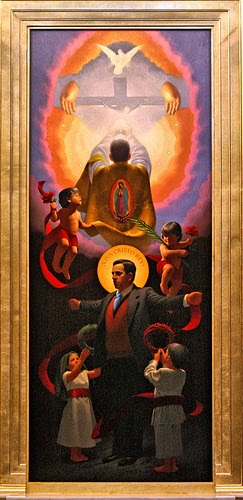 I am currently making time in my overloaded schedule to read Mark Levine’s book Liberty and Tyranny.
I am currently making time in my overloaded schedule to read Mark Levine’s book Liberty and Tyranny.Being a frequent listener to Levine's radio show, what struck me the most about his book is how truly scholarly this undertaking was. It has close to 40 pages of footnotes and documentations in the rear of the book. I know that Levine has an incredibly bright legal mind, but he is also an entertainer and humorous talk show host so I was expecting this book to be somewhat an extension of his persona and his radio show. However, this book reads like a dissertation. It is full of Federalist history, noted democratic philosophers and pertinent, historic quotes. Being 40% through this book, I am beginning to think that this is a book for the ages. Similar to Adam's Smith's Wealth of Nations. It is not your usual let me cash in on my fame by offering my thoughts bounded. This book is far above any book written by his contemporary talk show hosts or present day politicians. ("There, I said it!")
One of Levin's points that made me reflect the most was the notion that property is an essential part of Liberty. Being a Social Conservative, I always gravitate towards the “Freedom of Religion,” “Freedom of Speech”, “Inalienable Right to Life” as my prime definition of Liberty, but Levine made me pause on the concept of property.
And more than my layman’s definition of property, which I think is anything that I have to mow on Saturday, Levin is talking about any fruit of your labor. Your house, your salary, your business, your retirement accounts - - the legal definition of property which is anything that is owned by a person or entity (real and personal).
Levin states:
"In the civil society, private property and liberty are inseperable. The individual's right to live freely and safely and to pursue happiness includes the right to acquire and possess property, which represents the fruits of his own intellectual and/or physical labor. As the individual's time on earth is finite, so, too, is his labor. An illegitimate denial or diminution of his private property enslaves him to another and denies him his liberty."
Levine makes a very compelling argument that as our government assaults and commandeers our individual property through taxes and regulation we move from a state of Liberty to a state of Tyranny.
It made me rethink property in relation to Liberty. I should not have been surprised by this, the American Revolution was based on Taxation without Representation, a government that was attacking the patriot's personal property. The Founding Fathers for the most part had Freedom of Religion, and Ben Franklin was turning out his free speech daily newspapers. These were not the problem in 1776.
Another very interesting point Levine made was that our Constitution is a bedrock set of principles that can not be open to each generation's interpretation. The Liberal's bogus, “Living, breathing document” claim is just that:
"The Conservative may ask the following questions: If words and their meaning can be manipulated or ignored to advance the Statist's [read Liberal] political and policy preferences, what then binds the allegiance to the Statist's words? Why should today's law bind future generations if yesterday's lawy does not bind this generation? Why should judicial precedent bind the nation if the Constitution itself does not?"
The argument is that if one generation interprets the Constitution in a certain way, and the next generation then comes and interprets it in a completely opposite way, the legal document then conflicts itself and has no true meaning. He points out The U.S. Constitution is in fact a legal document with words that have a bedrock, absolute and a contractual meaning.
I would highly recommend this book for your beach reading.


No comments:
Post a Comment